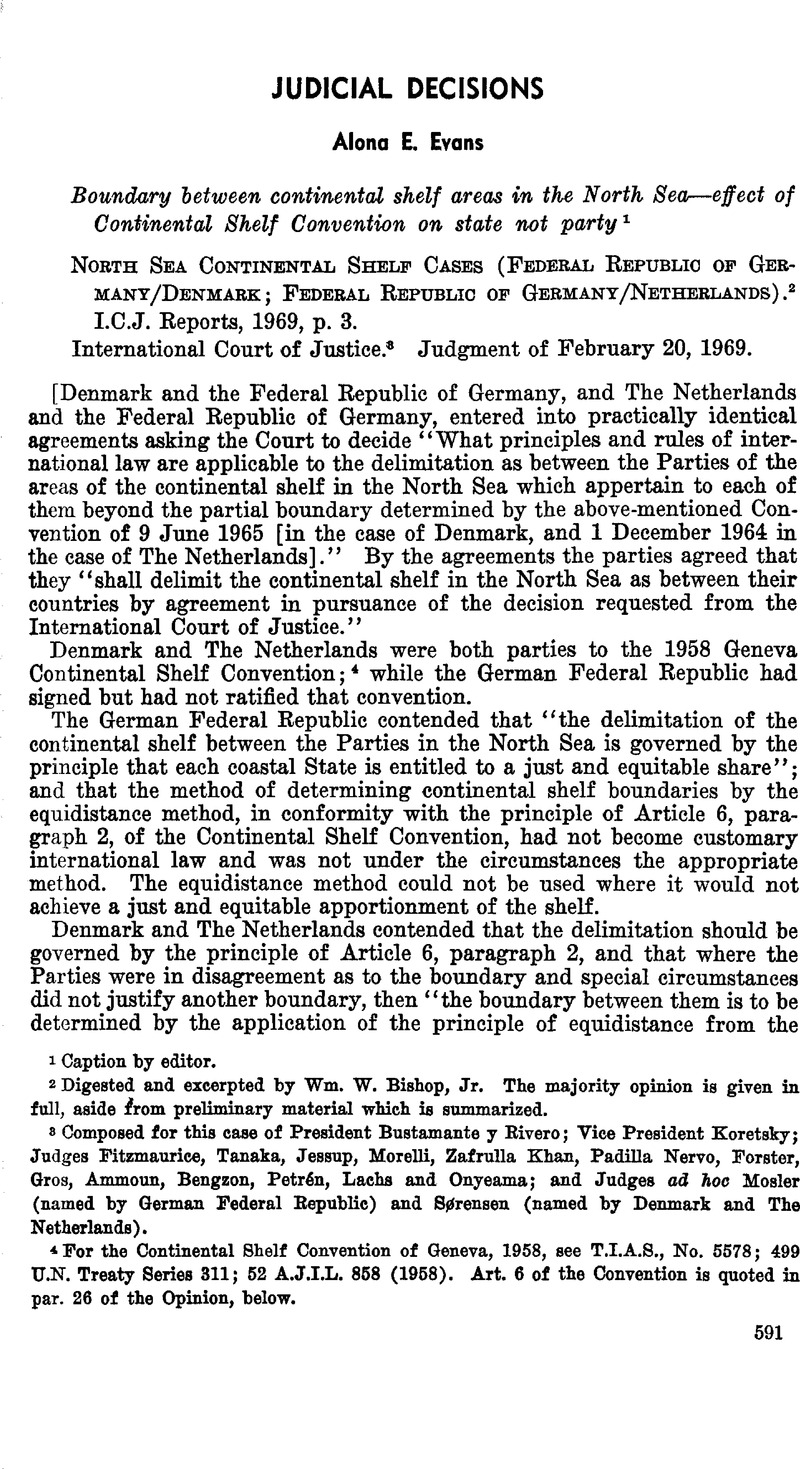Published online by Cambridge University Press: 28 March 2017

1 Caption by editor.
2 Digested and excerpted by Wm. W. Bishop, Jr. The majority opinion is given in full, aside from preliminary material which is summarized.
3 Composed for this case of President Bustamante y Bivero; Vice President Koretsky; Judges Fitzmaurice, Tanaka, Jessup, Morelli, Zafrulla Khan, Padilla Nervo, Forster, Gros, Ammoun, Bengzon, Petrén, Lachs and Onyeama; and Judges ad hoe Mosler (named by German Federal Republic) and Sørensen (named by Denmark and The Netherlands).
4 For the Continental Shelf Convention of Geneva, 1958, see T.I.A.S., No. 5578; 499 U.N. Treaty Series 311; 52 A.J.I.L. 858 (1958). Art. 6 of the Convention is quoted in par. 26 of the Opinion, below.
5 The dissenting judges were Judge Bengzon, who made a brief statement that Article
6 of the Geneva Convention was applicable; and Vice President Koretsky, Judges Tanaka, Morelli, and Lachs, and Judge ad hoc Sørensen, each of whom gave dissenting opinions.
7 Judge Sir Muhammad Zafrulla Khan concurred but made a brief declaration. President Bustamante y Rivero, and Judges Jessup, Padilla Nervo and Ammoun con curred in the result but appended separate opinions. Apparently only Judges Sir Gerald Fitzmaurice, Forster, Gros, Petrén, Onyeama, and Judge ad hoc Mosler joined in the Judgment of the Court without expressed question or comment. Diversion of “Water from the Meuse, P.C.I.J., Ser. A/B, No. 70, p. 77 (1937).
8 As an aside, Judge Sørensen stated: ‘ ‘ The test of exploitability for determining the outer limits of the continental shelf should not be taken to imply that the status of the seabed and subsoil of the ocean depths could be governed by the Convention. The legal concept of the continental shelf cannot reasonably be understood, even in its widest connotation, as extending far beyond the geological concept.“